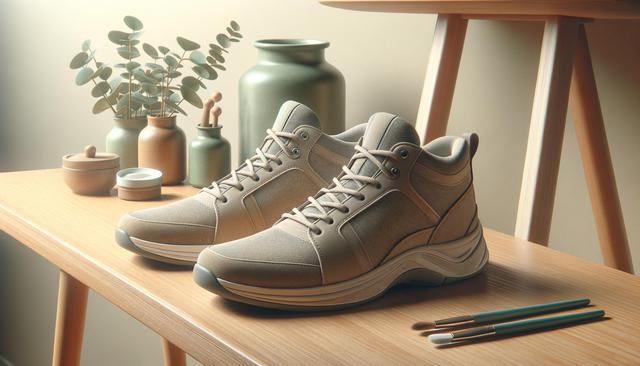Understanding Neuropathy and Its Impact on Foot Health
Peripheral neuropathy is a condition that affects the nerves outside the brain and spinal cord, often leading to tingling, numbness, or pain in the hands and feet. For individuals dealing with this condition, foot health becomes a crucial part of daily life. Neuropathy can result from diabetes, chemotherapy, infections, or other underlying medical issues. As a result, the feet may become more vulnerable to injuries, pressure sores, and discomfort due to reduced sensation or altered gait.
People with neuropathy need to take extra care in their footwear choices. Wearing the wrong shoes can exacerbate symptoms or lead to complications such as ulcers or infections. Neuropathy shoes are designed to address these risks by offering enhanced support, cushioning, and room for sensitive feet. They help reduce friction and pressure, ensuring the foot remains protected throughout the day.
Key Features of Neuropathy Shoes
Neuropathy shoes incorporate several thoughtful design elements that cater to the specific needs of individuals with nerve sensitivity. These features are not only about comfort but also about preventing further complications associated with neuropathy.
Some of the most important characteristics of neuropathy-friendly shoes include:
- Extra-depth construction to accommodate orthotics or swollen feet
- Non-binding uppers to prevent pressure on sensitive areas
- Seamless interiors to reduce irritation
- Slip-resistant outsoles for better stability and safety
- Cushioned insoles and shock absorption properties
These features work together to create a footwear option that supports both mobility and health. People who wear neuropathy shoes often find relief from discomfort and enjoy increased confidence in their daily activities.
Choosing the Right Pair for Your Needs
Selecting the appropriate pair of neuropathy shoes involves more than just picking a comfortable style. It requires understanding your specific foot condition, daily activities, and any advice from healthcare professionals. Consulting a podiatrist can be a helpful step in identifying what to look for in a shoe.
When shopping for neuropathy shoes, consider the following guidelines:
- Look for adjustable closures like Velcro or laces for a secure fit
- Ensure there’s enough room in the toe box to avoid squeezing
- Opt for materials that are breathable and flexible
- Check for proper arch support and heel cushioning
- Try the shoes on later in the day when feet are most swollen
It’s also wise to test the shoes by walking around in them for a few minutes. Any discomfort or tight spots should be taken seriously, as they could lead to issues over time.
Benefits of Wearing Neuropathy Shoes Daily
Incorporating neuropathy shoes into your daily wardrobe can offer a range of benefits beyond immediate comfort. These shoes are more than a temporary solution; they play a long-term role in managing and mitigating symptoms of nerve damage in the feet.
Some of the ongoing advantages include:
- Improved balance and stability, reducing the risk of falls
- Less foot fatigue during walking or standing
- Prevention of pressure sores and blisters
- Support for healthy posture and gait
- Accommodation of orthotic devices for better alignment
By wearing supportive shoes every day, individuals with neuropathy can maintain a more active lifestyle with fewer interruptions due to foot pain or complications. The consistent use of appropriate shoes can also support better circulation and reduce inflammation in the long run.
Maintaining and Caring for Your Neuropathy Shoes
Proper care extends the longevity and effectiveness of neuropathy shoes. Like any specialized product, these shoes benefit from regular maintenance and mindful use. Keeping them clean, dry, and in good condition ensures they continue to provide the necessary support and protection.
Here are some recommended care tips:
- Rotate between two pairs to allow each to dry and maintain shape
- Use a soft brush to remove dirt and debris from the exterior
- Remove and clean insoles regularly to prevent odor and bacterial buildup
- Store shoes in a cool, dry place away from direct sunlight
- Replace shoes when cushioning or structural support starts to decline
Following these simple care steps can help preserve the comfort and functionality of your footwear. Additionally, inspecting your shoes for wear and tear ensures they remain effective in supporting foot health.
Conclusion: Prioritizing Comfort and Foot Health
For individuals living with neuropathy, choosing the right footwear is more than a matter of style—it’s a critical part of managing daily comfort and long-term health. Neuropathy shoes offer a thoughtful design that addresses sensitivity, support, and stability, making them a valuable option for those navigating nerve-related foot issues.
By understanding the features, benefits, and proper maintenance of these specialized shoes, users can make informed decisions that support their mobility and well-being. Whether you are newly diagnosed or seeking improved comfort, neuropathy shoes can contribute meaningfully to a more comfortable and confident lifestyle.


